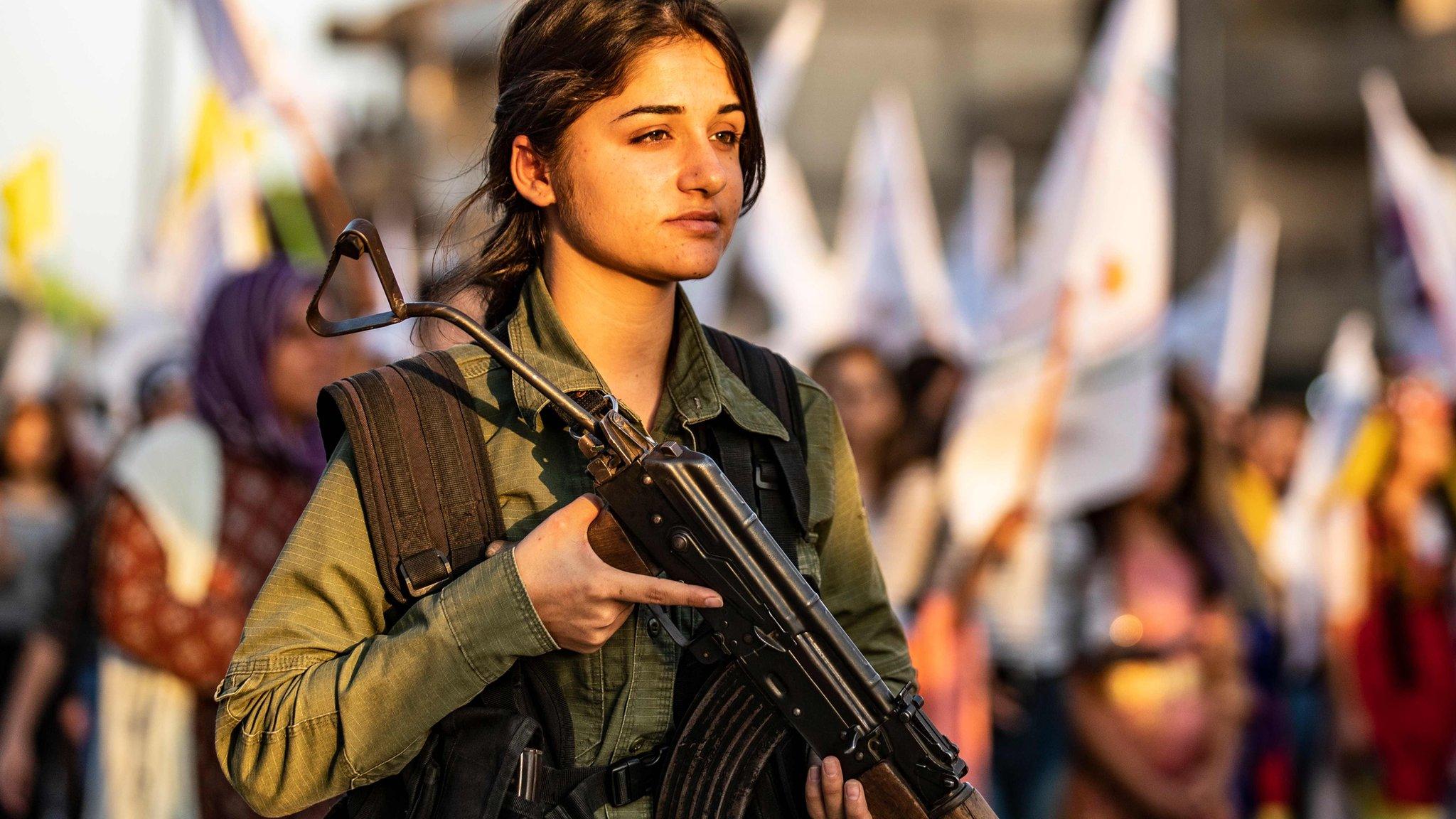Turkey boosts troops to cross Syria border 'shortly'
- Published
Watch as Turkish tanks are sent to the border with Syria
Turkey has boosted its forces on the Syrian border ahead of a long-threatened incursion that could target Kurdish-led forces allied to the US.
Troops would cross into Syria "shortly", a presidential aide said.
Turkey wants to create a "safe zone" cleared of a Kurdish militia that will also house some of Turkey's 3.6 million Syrian refugees.
President Donald Trump has withdrawn US troops in the area in a controversial move condemned at home and abroad.
He again defended his move on Tuesday, saying the Kurds had not been abandoned, calling them "special".
The Kurds were key US allies in defeating the jihadist group Islamic State (IS) in Syria.
But Turkey regards the Kurdish militia that dominates the US-allied Syrian Democratic Forces (SDF) as a terrorist group. The US pullout was seen as paving the way for an offensive.
What is happening at the border?
Convoys of trucks with armoured personnel carriers and tanks were seen heading to the Turkish border town of Akcakale on Tuesday night. Images of buses carrying personnel were shown by state news agency Anadolu.
Turkey is planning to create a 32km (20-mile) deep "safe zone" running for 480km along the Syrian side of the border.
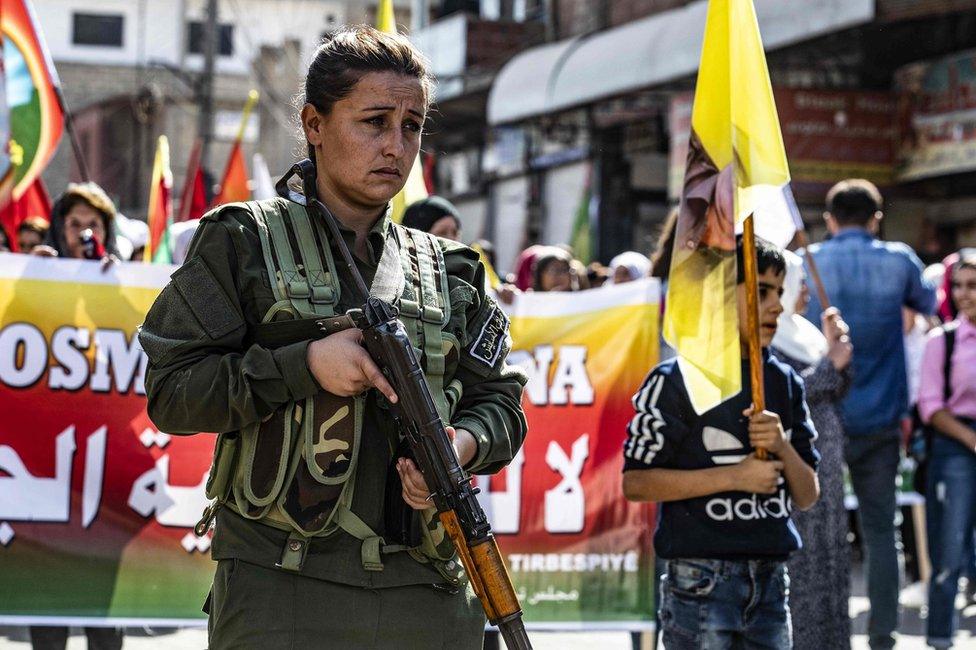
Kurds inside Syria have been holding protests against the threat of a Turkish incursion
Fahrettin Altun, the Turkish president's director of communications, said Turkish forces would cross the border shortly to "neutralise a long-standing threat against Turkish citizens".
Kurdish militia fighters, he said, could either "defect or we will have [to] stop them from disrupting our counter-IS efforts".
Ibrahim Kalin, special adviser to Turkish President Recep Tayyip Erdogan, told the BBC "the goal is to clear and secure our border along with Syria by eliminating all the terrorist elements" and to create conditions for "refugees to return safely and voluntarily".
Mr Kalin also said that "Turkey has no intention of occupying any part of Syria".
Initial indications suggest a limited incursion by Turkey along a 100km stretch of the border between the towns of Tal Abyad and Ras al-Ain.
It is a sparsely populated, mostly Arab, area and it is unclear what conflict with Kurdish forces would take place.


US troops have already withdrawn from four border positions there, but they have not withdrawn from positions further east and west.
What has the reaction been?
The SDF said the border areas were "on the edge of a possible humanitarian catastrophe".
"The attack will spill the blood of thousands of innocent civilians," the SDF's general command said.
The Kurdish-led administration in the region announced "three days of general mobilisation in northern and eastern Syria", calling on civilians to "head to the border with Turkey to fulfil their duty".
Russian Foreign Minister Sergei Lavrov said Washington was sending mixed signals and Kurds feared the confusion could "ignite the whole region".
Russia's security council said it was "important for everyone to avoid any action that could create obstacles to a peaceful settlement in Syria".
What has Donald Trump said?
He said his pullout - described as a "stab in the back" by the SDF - affected "only 50 soldiers" of some 1,000 US troops in the country.
In a series of tweets, Mr Trump also praised Turkey as a trade partner and Nato ally, hours after saying he would "destroy and obliterate" its economy if the country went "off limits" in its incursion.
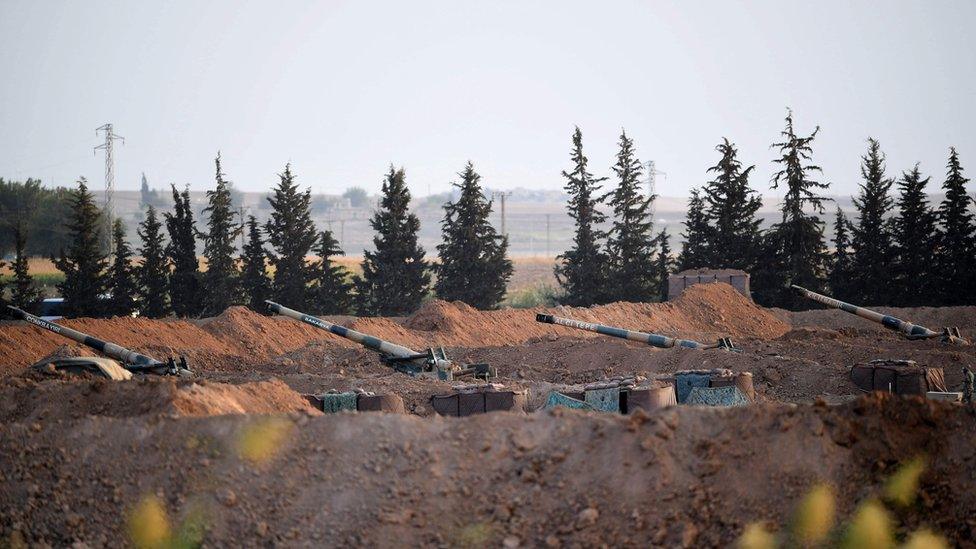
Turkish forces positioned on the border with Syria near Akcakale
"We may be in the process of leaving Syria, but in no way have we abandoned the Kurds, who are special people and wonderful fighters," Mr Trump said, adding that the US was helping the Kurds "financially [and with] weapons".
"Any unforced or unnecessary fighting by Turkey will be devastating to their economy and to their very fragile currency," the president said as he described the relationship between the two countries as "very good".
The Pentagon said Turkey had "unfortunately... chosen to act unilaterally" and US personnel had been removed "to ensure their safety" but were not leaving Syria.
The White House also confirmed that Turkish President Recep Tayyip Erdogan would visit the US on 13 November at the invitation of President Trump.
How would an incursion affect the IS situation?
The SDF says it is detaining more than 12,000 men suspected of being IS members in seven prisons. At least 4,000 of the prisoners are foreign nationals. The exact locations have not been not published, but some are reportedly close to the Turkish border.
Inside the camp of IS families in Syria
Two camps - Roj and Ain Issa - holding families of suspected IS members are inside the "safe zone".
Mr Trump warned Mr Erdogan if he did send troops into northern Syria, they would be responsible for securing captured IS fighters.
The SDF has said its fighters will continue to guard the prisons and camps, but there is a concern they could be called away to other areas or be forced to flee if they come under attack.
On Wednesday, IS militants reportedly carried out three suicide attacks in their former de facto capital of Raqqa, about 80km south of Akcakale on the Turkish border. There was no confirmation of casualties.
- Published2 February 2018
- Published23 March 2019
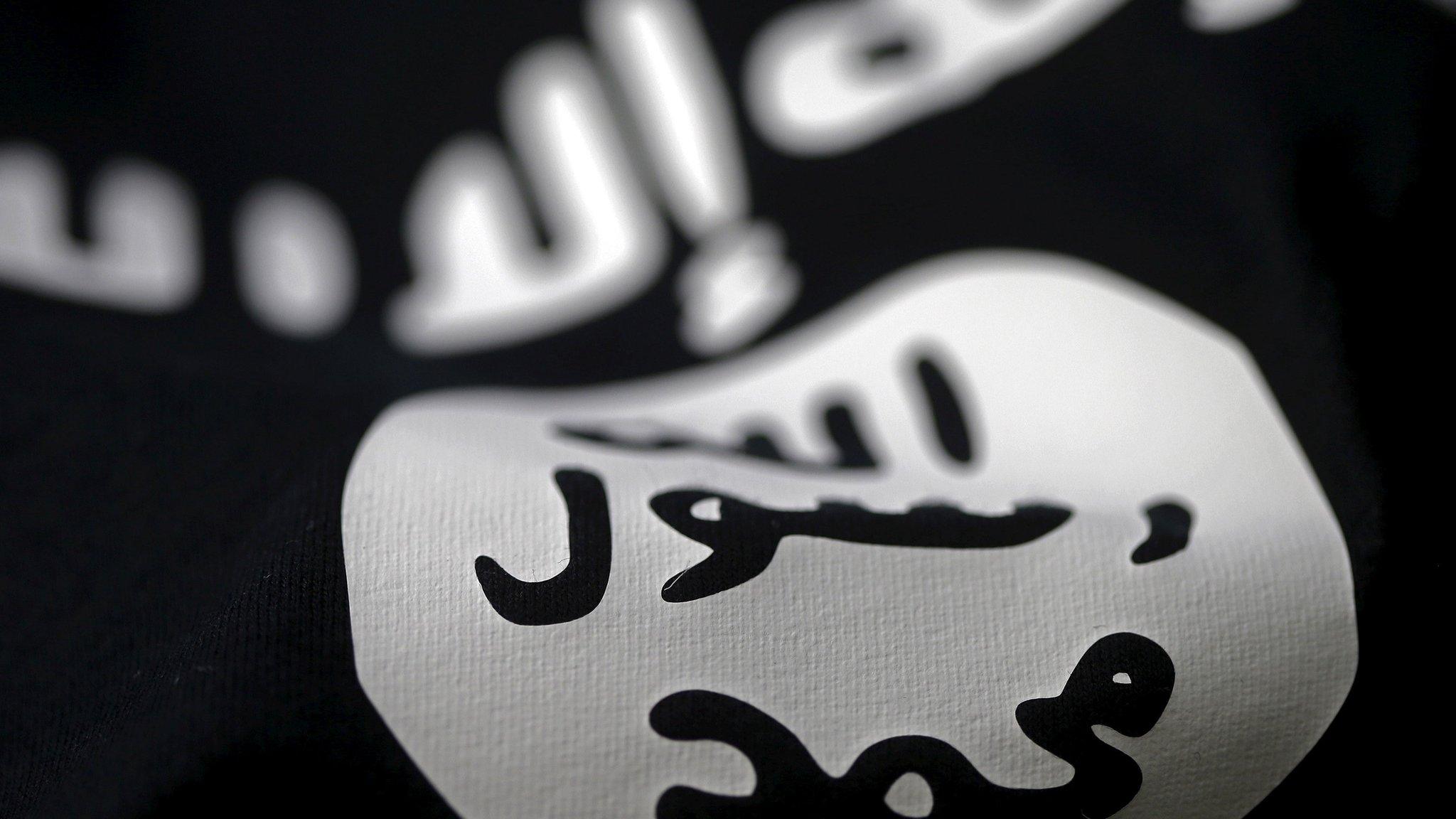
- Published16 September 2019
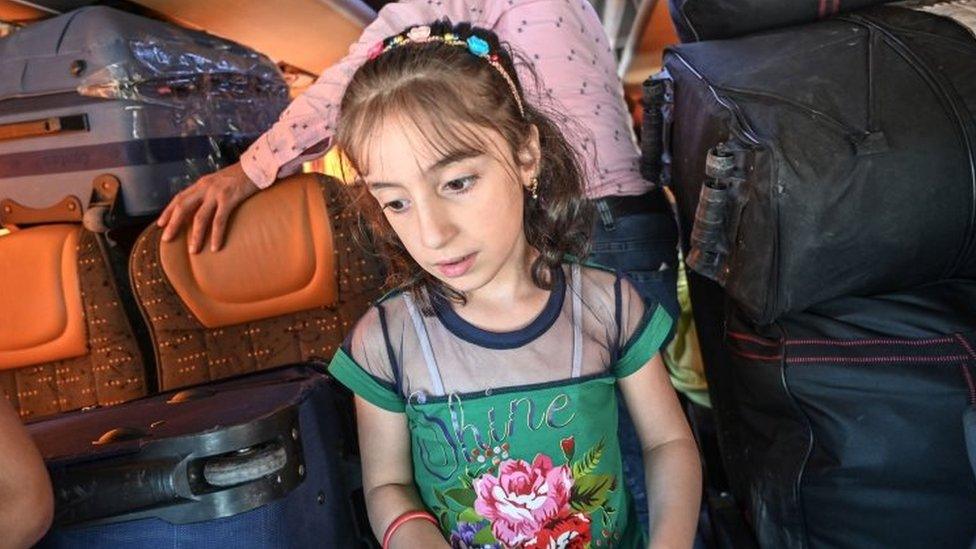
- Published20 August 2019
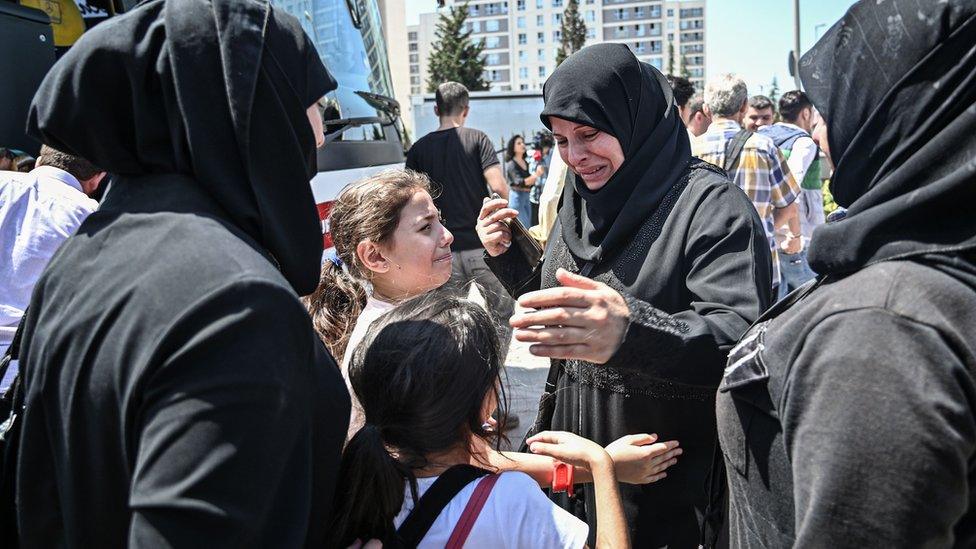
- Published27 August 2019
